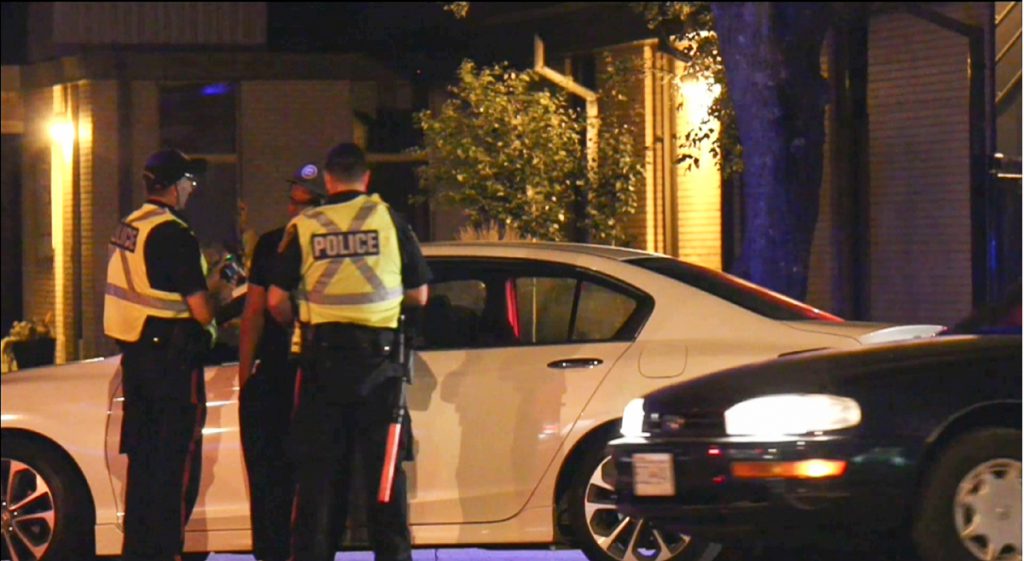DUI Lawyer Toronto
DUI Lawyer Toronto: Facing DUI charges is an unsettling and overwhelming experience. A DUI conviction can profoundly affect your life, from losing driving privileges to incurring steep fines and facing potential jail time. Beyond these penalties, a DUI conviction can impact your employment opportunities, personal relationships, and overall future. It’s not just about avoiding legal consequences; it’s about safeguarding your rights, your freedom, and the life you’ve built.
Navigating Canada’s DUI Laws – The Importance of Legal Expertise
Canada’s DUI laws are strict. These laws, outlined in sections of Canada’s Criminal Code, impose serious penalties, with harsher consequences for those with prior convictions or those involved in incidents causing bodily harm or death. Given the complexities of these laws, attempting to navigate the legal system alone can lead to misunderstandings and missteps that may jeopardize your case. That’s where an experienced DUI lawyer becomes indispensable.
Understanding Impaired Driving (DUI) Charges in Canada
In Canada, driving under the influence (DUI), also called impaired driving, is a serious criminal offence under the Criminal Code of Canada (Sections 320.14 to 320.18). The law prohibits operating a vehicle while impaired by alcohol, drugs, or a combination of both. The primary types of DUI offenses include:
1. Operating while Impaired (s. 320.14(1)(a)) – Operating a motor vehicle while your ability to do so is impaired by alcohol or drugs.
2. Over 80 (s. 320.14(1)(b)) – Operating with a Blood Alcohol Concentration (BAC) over 80 mg of alcohol in 100 mL of blood.
3. Refusal to Comply with Testing (s. 320.15) – Refusing to provide a breath or blood sample when lawfully required to do so by a police officer.
Penalties for DUI Convictions
Penalties vary based on factors such as prior convictions and aggravating circumstances like bodily harm or death. Common DUI penalties include:
• First Offense: Minimum fine of $1,000 and a possible license suspension.
• Second Offense: Minimum of 30 days in jail, license suspension, and higher fines.
• Third Offense or More: Minimum of 120 days in jail, extended license suspension, and possible vehicle forfeiture.
For DUIs causing bodily harm or death, the penalties are much more severe, often including significant prison terms.
Defences for DUI Charges
Each DUI case is unique, and the defence strategies can be complex. Here are common defences against DUI charges:
1. Challenging the Validity of the Stop (s. 8 and 9 of the Canadian Charter of Rights and Freedoms):
o Section 8 (Unreasonable Search and Seizure): If law enforcement conducted a search, such as a breath or blood test, without reasonable grounds, it may violate your section 8 rights, making any evidence gathered through this unreasonable search potentially inadmissible as it was obtained unlawfully.
o Section 9 (Arbitrary Detention or Imprisonment): Law enforcement must have a reasonable basis to stop a vehicle. If they do not, it could be an arbitrary detention under section 9. This might invalidate evidence obtained during the stop as Section 9 of the Charter protects individuals from arbitrary detention.
2. Procedural Errors:
o Police officers must follow strict procedures when administering roadside tests. Any deviations from these procedures, such as incorrect calibration of breathalyzers or mishandling of samples, can weaken the prosecution’s case.
3. Indicia of Impairment:
o When making a DUI arrest, law enforcement relies on “indicia of impairment,” which includes observable signs that suggest intoxication, such as bloodshot eyes, slurred speech, and erratic behavior. However, these indicators are not always conclusive evidence of impairment and may stem from unrelated factors, such as fatigue, medical conditions, or stress. A knowledgeable DUI lawyer can investigate whether these signs genuinely indicated impairment or if alternative explanations could have caused the observed behavior. Law enforcement tend to make general observations of the driver, such as noting their balance, coordination, reaction time, and comprehension. However, a DUI lawyer can question whether these observations alone are sufficient to indicate impairment, as these signs may be the result of unrelated health issues or environmental factors, like poor lighting or other road conditions.
How We Can Help You
A skilled DUI lawyer is essential for challenging the evidence against you. From reviewing police procedures to examining the validity of breathalyzer results, an experienced lawyer will investigate every aspect of your case.
1. Challenge the Charge
Our first approach is to review your case thoroughly to convince the Crown attorney that there’s no realistic prospect of a conviction. If successful, the Crown has a duty to withdraw the charge, potentially saving you from the consequences of a criminal conviction.
2. Review the Disclosure
Once we obtain the disclosure from the Crown, we assess the strength of the case against you, identifying any weaknesses or gaps. For instance, if the disclosure shows that the breathalyzer was improperly administered, we can argue that there is no reasonable prospect of conviction, which may lead to the withdrawal of charges.
3. Examine the Grounds for Arrest and Detention
The circumstances of your arrest and detention are crucial to your defence. Sections 8 and 9 of the Canadian Charter of Rights and Freedoms require that police have reasonable and probable grounds for stopping you, administering a breath test, and making an arrest. If the grounds for your arrest or detention were unjustified, it could constitute a Charter breach. We can then move to have the evidence ruled inadmissible under section 24(2).
4. Challenge the Indicia of Impairment
Arrests for DUI often rely on so-called “indicia of impairment,” such as bloodshot eyes or the smell of alcohol. We scrutinize whether these indicators were sufficient to warrant an arrest. If these signs were ambiguous or absent, it could undermine the credibility of the arrest, forming a solid basis for challenging the charge. We examine all these factors, including the accuracy and administration of each test, as well as the officers’ observations. By investigating alternative explanations and questioning the reliability of tests, an experienced lawyer can raise doubts about the prosecution’s evidence, potentially leading to a dismissal or reduction of charges.
5. Challenge Impairment at the Time of Driving
In cases where the arrest happened away from the vehicle (such as at your home), the Crown must prove that you were impaired while driving. Although there is a legal presumption of impairment if the arrest was made within two hours of driving, we explore whether the Crown can establish this crucial timeline accurately. If there’s uncertainty about the exact time you were driving, or if the prosecution’s case relies heavily on witness statements, we analyze the credibility of those witnesses and any inconsistencies in the evidence. Weaknesses in witness testimony can significantly impact the case against you.
7. Consider Alternative Charges
Sometimes, negotiating for a lesser charge can be in your best interest. Offences like public nuisance or dangerous operation of a motor vehicle don’t carry mandatory minimum penalties. In some cases, these charges could be eligible for probation followed by a discharge, sparing you from a criminal record, which is a key consideration if you travel, pursue education, or work in sensitive industries.
8. Act Without Delay
Taking quick action is essential. The sooner you hire a lawyer, the more we can do to help get the charge withdrawn or negotiate a favourable resolution. When the Crown attorney sets a sentencing position early, it limits our ability to negotiate effectively. Acting quickly ensures we have the best chance to challenge the Crown’s position from the outset.
9. Understand the Arraignment Process
At your first court appearance, the arraignment, the Crown decides whether to proceed with your charge as an indictable or summary offence. Before you enter any plea, we’ll request the disclosure and strategize to protect your interests. Early intervention can keep us ahead of the Crown’s decisions, which may otherwise limit negotiation opportunities.
The Benefits of Having a DUI Lawyer
There are various benefits of hiring a DUI lawyer that can make a difference between facing a conviction or having your charges reduced or dismissed. They understand how DUI cases are prosecuted, how to challenge the evidence, and which defences are likely to succeed.
• Minimize Consequences: A conviction can impact your career, travel, and even housing. With an experienced DUI lawyer on your side, you may reduce fines, avoid jail time, and possibly retain your driving privileges.
• Experience Matters: DUI lawyers have specialized knowledge, from Charter rights challenges to challenging the validity of police tests.
• Confidence in Court: Defending yourself against DUI charges requires a firm understanding of Canada’s legal system and the rules of evidence. A DUI lawyer provides the confidence and legal expertise to represent you effectively.
Don’t Face DUI Charges Alone
As Criminal Code laws are federal, we represent clients across Canada, and we offer flexible representation via Zoom. We provide expertise tailored to your case.
DUI charges are complex, and the penalties can be severe. If you’re facing a DUI, it’s essential to consult a professional who can guide you through the legal process, safeguard your rights, and work to achieve the best possible outcome for your case.
DUI Lawyer Toronto: Let us help you protect your future. Reach out today for a consultation. Don’t let a DUI charge define your life—put your trust in experienced legal professionals who understand how to navigate the system.
Related Cases
1100
Successful DUI cases
300
DWI
Cases won
110
Driving
infractions


